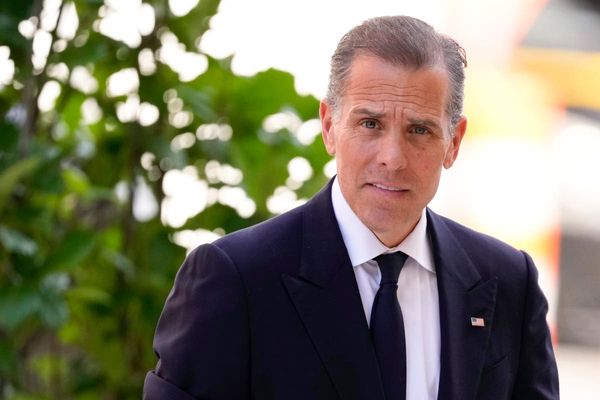The story so far: How free and fair is India’s National Human Rights Commission? The question is under international review, in a process governed by the U.N.-recognised Global Alliance of National Human Rights Institutions (GANHRI). NHRC has held an ‘A rating’ since 1999; it was due for re-accreditation by the Geneva-based body last year. On May 1, GANHRI deferred NHRC’s accreditation for the second year in a row. The concerns of the Sub-Commitee for Accreditation (SCA) have carried over through the years: the composition of the human rights body lacks diversity, it has an opaque appointment process, fails to cooperate with civil society, involves police personnel in investigations creating “conflict(s) of interest,” and is unable to respond to escalating human rights violations.
Experts and human rights bodies such as Amnesty International have expressed fears that the once storied NHRC has been reduced to an ornamental body, imperilling the fate of Indian democracy.
What are the international ratings?
The GANHRI (previously known as the International Coordinating Committee of National Institutions for the Promotion and Protection of Human Rights) unites 120 National Human Rights Institutions globally. The SCA consists of sixteen ‘A’ status NHRIs, four from each region in the Americas, Europe, Africa, and the Asia-Pacific.
The body is responsible for reviewing and accrediting NHRIs in compliance with the Paris Principles adopted in 1993. The review process is conducted by the Sub-Committee for Accreditation (SCA) every five years. The SCA, as well as the U.N. Human Rights Office of the High Commissioner (OHCHR), the U.N. Development Programme (UNDP), international and regional organisations, and civil society members, collectively review the NHRIs’ performance. The NHRI has to apply for re-accreditation every five years, or if a change in its function affects its compliance with the Paris Principles.
The Paris Principles function as a treatise for National Human Rights Institutions (NHRIs) globally, ensuring they meet minimum standards to be deemed credible. The six principles provide an anchor for NHRIs, requiring them to maintain autonomy and transparency in decision making, composition, processes and structure.
India’s National Human Rights Commission and Atate bodies were formed only in 1993, with the enactment of the Protection of Human Rights Act (PHRA). This was a “face-saving gesture,” wrote lawyer Shrutika Pandey in an article, when “human rights abuses in various regions of the country during the economic crisis of 1990” chipped away at donor interest.
Also Read: Universal rights and universal violations
The rating happens on a scale of A and B; ‘A’ implies a body is fully compliant with the Paris Principles, whereas B signals “partial compliance.” Previously, the SCA has removed accreditation of NHRIs in Afghanistan, Myanmar, Niger and Russia.
India retained its A rating in 2006 and 2011. Re-accreditation was delayed once before in 2016, when the SCA flagged the lack of diversity and political appointment of NHRC personnel. India managed to regain its accreditation in November 2017; It was the “first time in accreditation history that a country got back this status solely by proposing and committing to comply with the Paris Principles fully,” noted Amnesty International. Despite this, India’s NHRC continued to represent the Asia-Pacific region at the GANHRI.
Should India lose its A rating, NHRC will lose its voting position with GANHRI and forego its position as India’s designated representative at the United Nations Human Rights Council and other subsidiary bodies. Being untethered from a process that ensures international checks and balances will also jeopardise the protection and promotion of human rights in India.
What are the concerns?
GANHRI, in its two successive deferrals, cited issues with composition and processes. In 2016, the body flagged obscure, political appointments of officials and a lack of inclusivity in its five-member composition. At the time, three out of five members were from the ruling party; only 20% were women members, with no representation from other marginalised groups. The SCA recommended an amendment to India’s PHA to ensure that at least one of the three members of the NHRC is a woman. However, the SCA found the 2019 Amendments failed to “adequately address its recommendations from the November 2017 accreditation review.”
These apprehensions grew in GANHRI’s 2023 re-accreditation process. The NHRC lacked plurality and the selection process was still opaque. Moreover, the body questioned the biased involvement of police officers in investigations; the lack of cooperation with civil society members; and the “failure to exercise its mandate” in protecting the rights of marginalised groups.
What about police involvement?
Per the PHRA, the government appoints police officers of the “rank of Director General of Police or above...for the efficient performance of the Commission.” The SCA, first in 2017 and then in 2023, noted “the real or perceived conflict of interest in engaging police officers for the investigation of human rights violations, particularly those committed by the police.” A total of 478 cases of deaths in police custody and during police encounters remain pending before the NHRC, as of May 6 this year. The SCA recommended amending the PHRA to “remove the capacity for government to second police officers to act as investigative staff, ensuring that the NHRC can independently appoint suitably qualified staff.”
At present, former Indian Police Service officers head the Investigation Division of the NHRC.
Does the NHRC cooperate with NGOs?
The NHRC did not share an “effective or constructive” relationship with NGOs and human rights defenders (HRDs), the SCA found. The Paris Principles, and subsequently the 2018 Marrakesh Declaration, require NHRIs to support and empower HRDs. The NHRC after the 2017 review reconstituted a Core Group of HRDs and NGOs; the group met for the first time in August 2023 but neglected to discuss the “deliberate and sustained targeting of religious minorities and human rights defenders under a range of overly broad and vague laws and policies,” Amnesty noted. The body has conferred awards on HRDs “while numerous human rights defenders languish in detention without trial under various draconian laws,” such as Umar Khalid or the Bhima Koregaon activists who were detained under the Unlawful Activities (Prevention) Act. India’s NHRC is not a member of the Asia Pacific Forum Human Rights Defenders (HRDs) Working Group, which in its 2023 report named India as a top offender.
By 2023, civil society groups noted that NHRC was being reduced to a “silent spectator.” The number of suo motu cases taken up by the Commission has nearly halved, wrote Ms. Pandey, with a reduction rate of 46.32% between 2012-16 and 2016-20. The body also grew toothless and ineffective: at least 25 cases were closed due to refusal by State/Union Governments to comply with NHRC recommendations, according to data tabled in the Parliament in 2023. Others note the body has failed to review contentious laws such as the Foreign Contribution (Regulation) Act, Citizen Amendment Act and Forest Conversation Amendment Bill. A March 2024 statement signed by 15 UN special rapporteurs, human rights defenders and civil society sounded the alarm over escalating attacks on minorities, media and civil society in India, “calling for urgent corrective action as the country prepares to hold elections in early 2024.”
In response, the NHRC in response hosted a civil society consultation in September last year. In attendance were eight representatives: the chairperson and seven members of the NHRC core group. The meeting was boycotted by the Indian Civil Society, led by the All-Indian Network of National and State Human Rights Institutions (AiNNI). The event gave the NHRC a “fig leaf” of international legitimacy to cover up its dismal performance; the “last-minute meeting” also resulted in “rushed and inadequate consultation,” they said.
What about pluralism and transparency?
The committee’s composition is perhaps the most enduring pain point identified by the SCA. Per the PHRA, the NHRC should consist of:
- A chairperson who is a former Chief Justice of Supreme Court judge;
- A Commissioner who is a current or a former Judge of the Supreme Court;
- A Commissioner who is a current or former Chief Justice of a high Court;
- Three Commissioners with knowledge of or practical experience in human rights (of whom one shall be a woman);
- The Chairpersons of seven National Commissions.
A re-accreditation requires NHRIs to be diverse and nurture a “pluralistic balance,” not limited to religious or ethnic minorities. The NHRC’s advocacy of amendments to PHRA to push for gender imbalances is insufficient, the SCA said in 2023; its formulation, as it stands, is “incomplete.” Two of the six positions continue to be vacant (the roles require people with practical experience in human rights); five of the 10 positions are occupied by people belonging to the BJP or RSS, according to activists. No woman occupies a leadership position; only 95 of the 393 staff positions in NHRC are held by women. The NHRC in December 2023 appointed a woman member, Vijay Bharathi Sayani, a selection delayed by 633 days and one that failed to adhere to SCA’s recommendation to advertise vacancies and consult other stakeholders, advocate Ashish Reddy nted in an article.
In both 2017 and 2023, the review body flagged that the selection process does not pass muster. The cycle of application, screening, selection and appointment is “necessary to ensure the independence of, and public confidence in, the senior leadership of an NHRI,” the SCA noted. However, NHRC’s current selection design “is not sufficiently broad and transparent”; it does not advertise vacancies or engage in broad consultations with other members. Two of NHRC’s members were formerly associated with the Indian Foreign Service and the Director of the Intelligence Bureau. The Secretary-General is a former Indian Forest Service Officer. The SCA in its previous review recommended that India amend the PHRA to remove the government’s involvement and instead empower the NHRC to “independently” recruit candidates.
According to the PHRA, the President appoints the members and Chairperson based on the recommendation of a committee comprising the Prime Minister, the Speaker of Lok Sabha, the Minister of Home Affairs, the Leader of the Opposition in Lok Sabha, the Leader of the Opposition in Rajya Sabha and the Deputy Chairperson of the Council of States. In 2021, the selection committee included members of the ruling political coalition government and only one opposition voice (the post of LoP in Lok Sabha has been vacant since 2019).
The Narendra Modi-led committee appointed Supreme Court judge Arun Kumar Mishra as the Chairperson in 2021, a decision that shows “open contempt for the mandate of the NHRC which places emphasis on independent functioning and autonomy,” according to a letter signed by 71 activists that year. “How can a person who made an improper and unwarranted statement praising the prime minister...be trusted by people to act without fear or favour to protect their human rights violated by the government?” they wrote. Mr. Kumar Mishra had a “controversial” tenure, with judgments delivered in favour of the government and against the interests of Dalits, Adivasis and other marginalised communities.
In March, a letter by Amnesty International, CIVICUS, Human Rights Watch and other civil society groups urged GANHRI-SCA to “amend the current ‘A’ rating...to accurately reflect its failure to comply with the Paris Principles and address the deteriorating human rights situation in India.”







